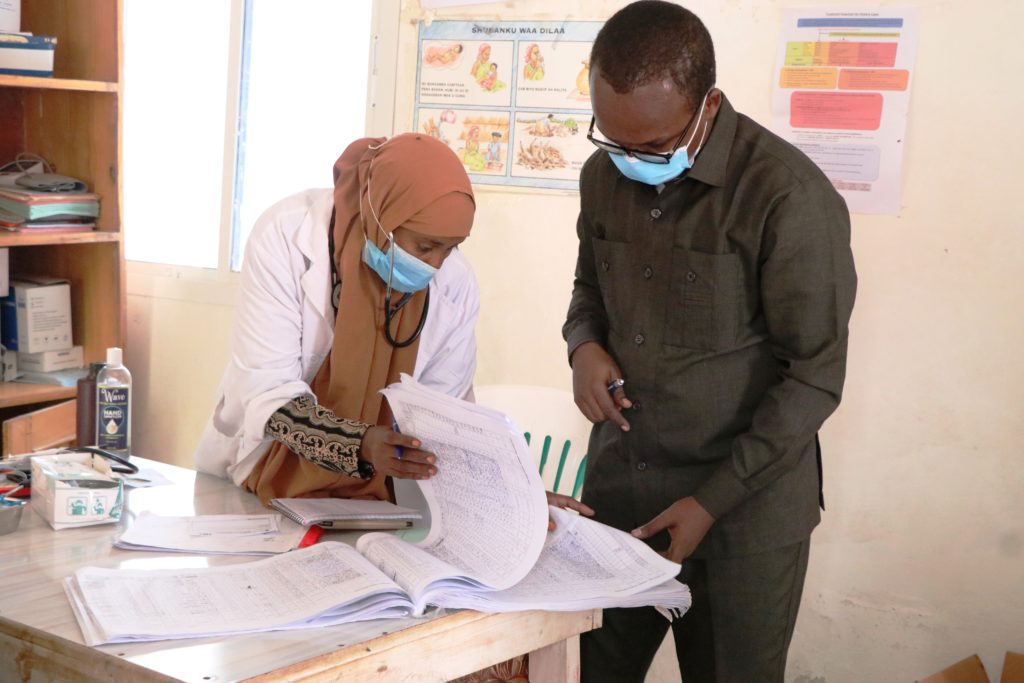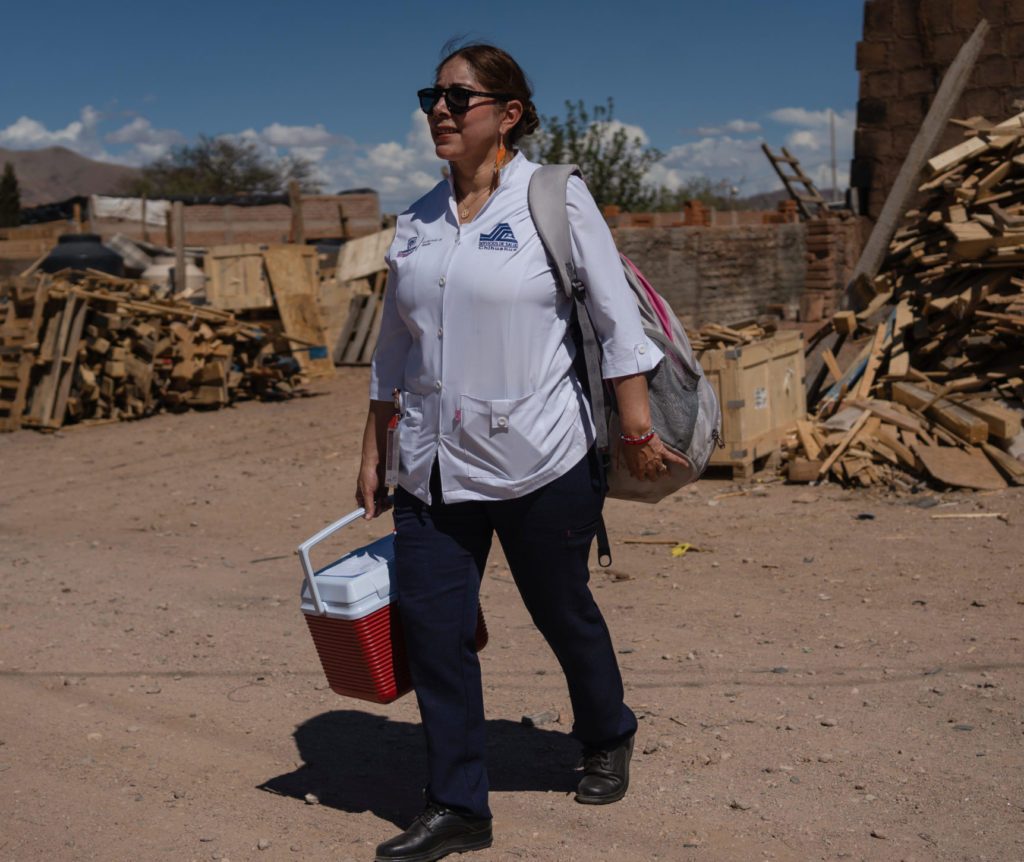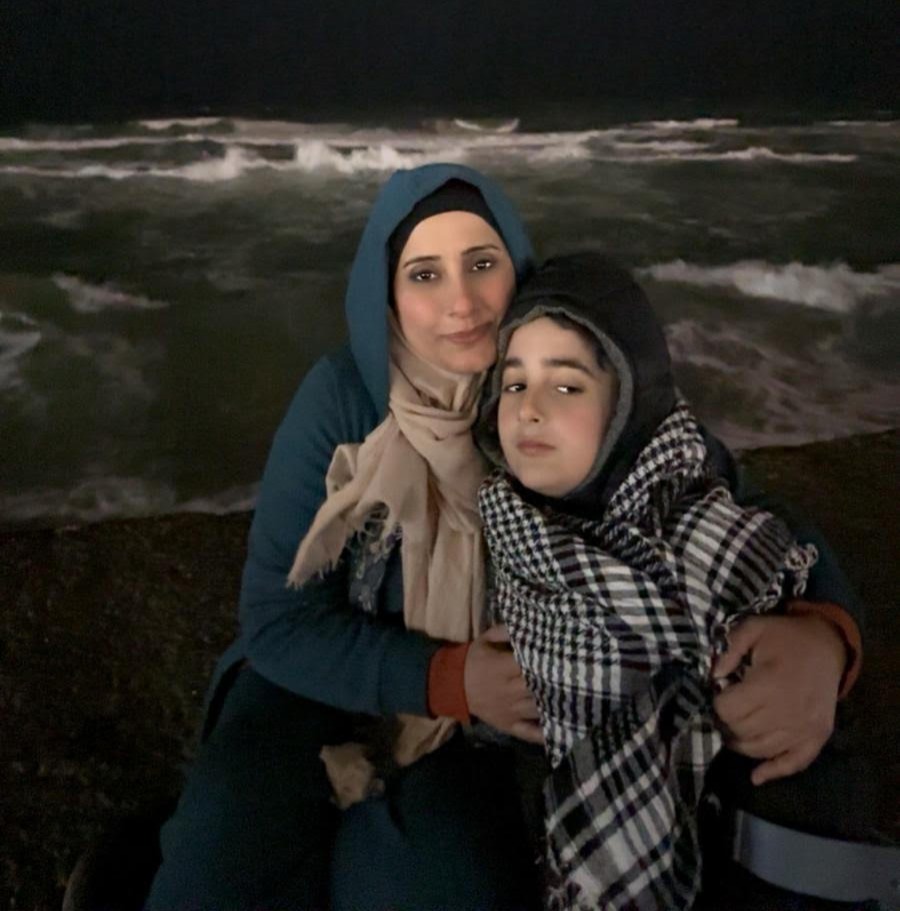Why Detecting Disease is a Great Investment

Bashibara, 50, is being treated for mpox at Kavumu Hospital in South Kivu, DRC, on 30 August 2024. Credit: WHO / Guerchom Ndebo
Funds for improved disease surveillance, coupled with international cooperation to access treatment can stop outbreaks like mpox escalating globally.
By Vanessa Rousselle, Emergency Portfolio Manager, WHO Foundation.
In my role, I want to prevent bad things from happening. As lead for the emergencies portfolio at the WHO Foundation, I count it as success if the funding we secure helps prepare countries to face disease outbreaks and prevent them from deepening into chronic health crises.
Averting illness and curtailing the spread of infection save lives just as much as trauma surgeons and emergency physicians. The current mpox health emergency is a timely reminder that disease surveillance can help early detect and contain an outbreak to prevent it spiraling out of control.
Clear lessons from COVID-19
The COVID-19 pandemic showed us that drugs and treatment are only part of the picture. We remember the news stories about doctors, nurses and community health workers without protective masks, lacking gloves, wearing flimsy aprons – or, in many cases, no PPE at all. National stockpiles were inadequate, and protective equipment was hastily procured, only to be discarded as sub-standard.
As the final report on the COVID-19 Solidarity Response Fund shows, the world would be better prepared to tackle disease outbreaks by well-staffed and equipped laboratories that provide quick results, PPE that is effective, and strong global supply chains for health products. And we know that investing in public health communication helps build trust and fight misinformation, while supporting frontline health workers is also crucial.
It’s also clear from the report that international cooperation matters. In low- and middle-income countries, 50% of PPE and diagnostic equipment came from the UN’s COVID-19 Supply Chain Task Force, which was primarily funded by the COVID-19 Solidarity Response Fund. At the start of 2020, only two African countries had COVID-19 lab testing capacity. By mid-year, all 54 countries had testing capacity, also thanks to the Fund.

Laboratory technicians Nesrine Jammal (left) and Lina Mroeh (right) prepare respiratory samples for PCR testing for respiratory viruses on 26 July 2022. Credit: WHO / Natalie Naccache
Preparedness saves lives
The COVID-19 pandemic was extraordinary in its scale and the speed with which people mobilized to find measures to slow its spread, test treatments and develop vaccines. But it wasn’t unique.
The emergency response mounted to tackle COVID-19 contained most of the elements we need to prepare for future emergencies. Improved research and laboratory testing, rapid funding mechanisms,community engagement, and international solidarity, among other things, can and do make a difference.
Unless public health laboratories are staffed by skilled technicians, they cannot identify infectious diseases and without trained epidemiologists carrying out surveillance, we cannot know how far or fast an outbreak has spread.
History shows us progress in preparedness and capacities to detect and respond. The Ebola outbreaks in West Africa in 2014-16 amply illustrate these lessons. More than 11,000 people died, largely in Guinea, Sierra Leone and Liberia and the outbreak affected a total of 10 countries.
In Uganda’s Ebola outbreak in 2022, 55 people died and the outbreak was contained within its border, a result which the World Health Organization (WHO) attributes to a combination of preparedness, rapid funding, support for health workers, sufficient PPE and the application of lessons learned.

A shipment of PPE, tents, treatments, and medical supplies arrived in the DRC on September 7. The items were dispatched from the WHO Emergency Preparedness Hub in Nairobi. Credit: WHO / Junior Diatezua
WHO Emergency Hubs speed up health responses
To assist with emergency health preparedness on the African continent, WHO has established Emergency Hubs in Nairobi and Dakar. Supported by the governments of Kenya and Senegal, these hubs are already dramatically cutting the time it takes to monitor the trends, train frontline responders, strengthen laboratories and dispatch medical supplies and healthcare workers during a health crisis.
In the case of the Nairobi hub, the WHO Foundation has received funding pledges of more than US$ 1 million dollars, for which we are now looking to match. I cannot stress enough how important it is that these hubs are able to provide support to countries in comprehensive surveillance, laboratory testing and training for health workers in addition to speeding up the delivery of medical aid.
Infectious disease outbreaks don’t respect borders but they do respect preventative measures, rapid surveillance and public health interventions such as contact-tracing and vaccinations.
Now is the right time to accelerate the implementation of these measures. Disease outbreaks, as mpox is showing us, move faster than funds can be mobilized to respond. The first 72 hours of a crisis is the most critical. We need to be prepared and ready to act with the aid of trained staff, logistics, supplies, and with communities fully involved. There needs to be international solidarity to enable equitable access to diagnostics, therapeutics and treatments. If we wait for the next crisis to break it will be too late and it will cost people’s lives.
Vanessa Rouselle is the Emergency Portfolio Lead at the WHO Foundation. Find out more about Vanessa’s work and connect with her on LinkedIn.
The WHO Foundation supports the work of the WHO Health Emergencies Program. Donate to support its life-saving operations around the world.




